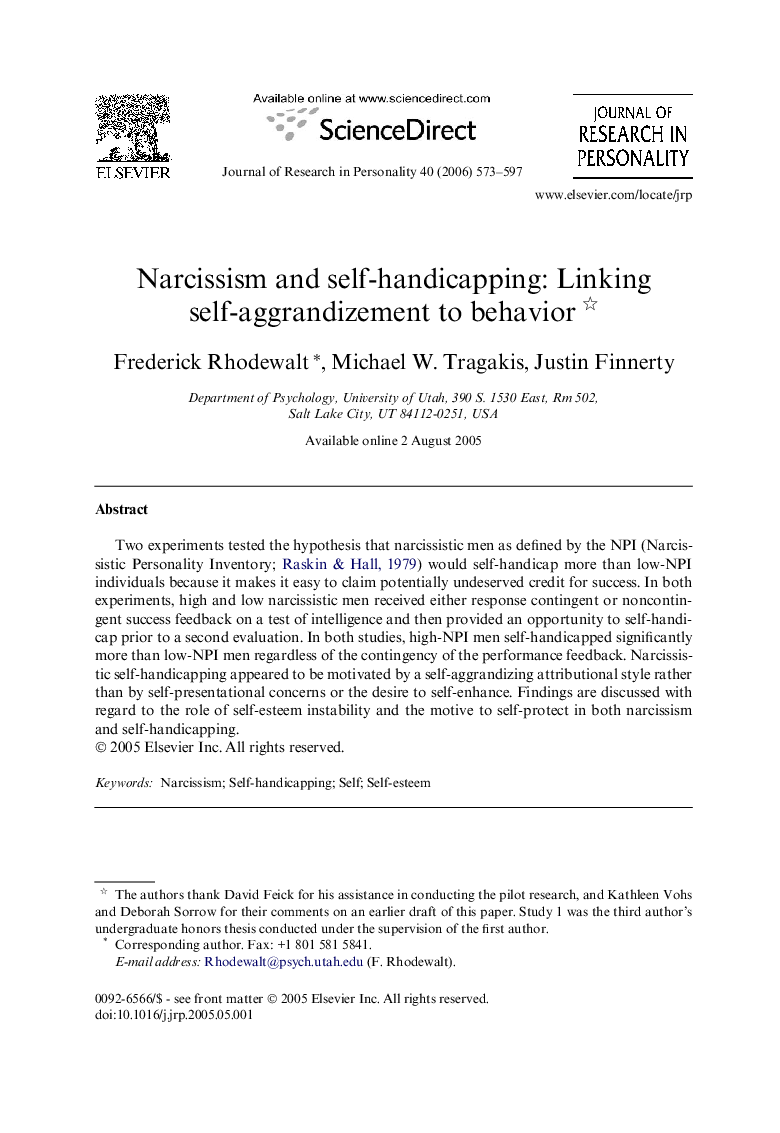| Article ID | Journal | Published Year | Pages | File Type |
|---|---|---|---|---|
| 951978 | Journal of Research in Personality | 2006 | 25 Pages |
Two experiments tested the hypothesis that narcissistic men as defined by the NPI (Narcissistic Personality Inventory; Raskin & Hall, 1979) would self-handicap more than low-NPI individuals because it makes it easy to claim potentially undeserved credit for success. In both experiments, high and low narcissistic men received either response contingent or noncontingent success feedback on a test of intelligence and then provided an opportunity to self-handicap prior to a second evaluation. In both studies, high-NPI men self-handicapped significantly more than low-NPI men regardless of the contingency of the performance feedback. Narcissistic self-handicapping appeared to be motivated by a self-aggrandizing attributional style rather than by self-presentational concerns or the desire to self-enhance. Findings are discussed with regard to the role of self-esteem instability and the motive to self-protect in both narcissism and self-handicapping.
